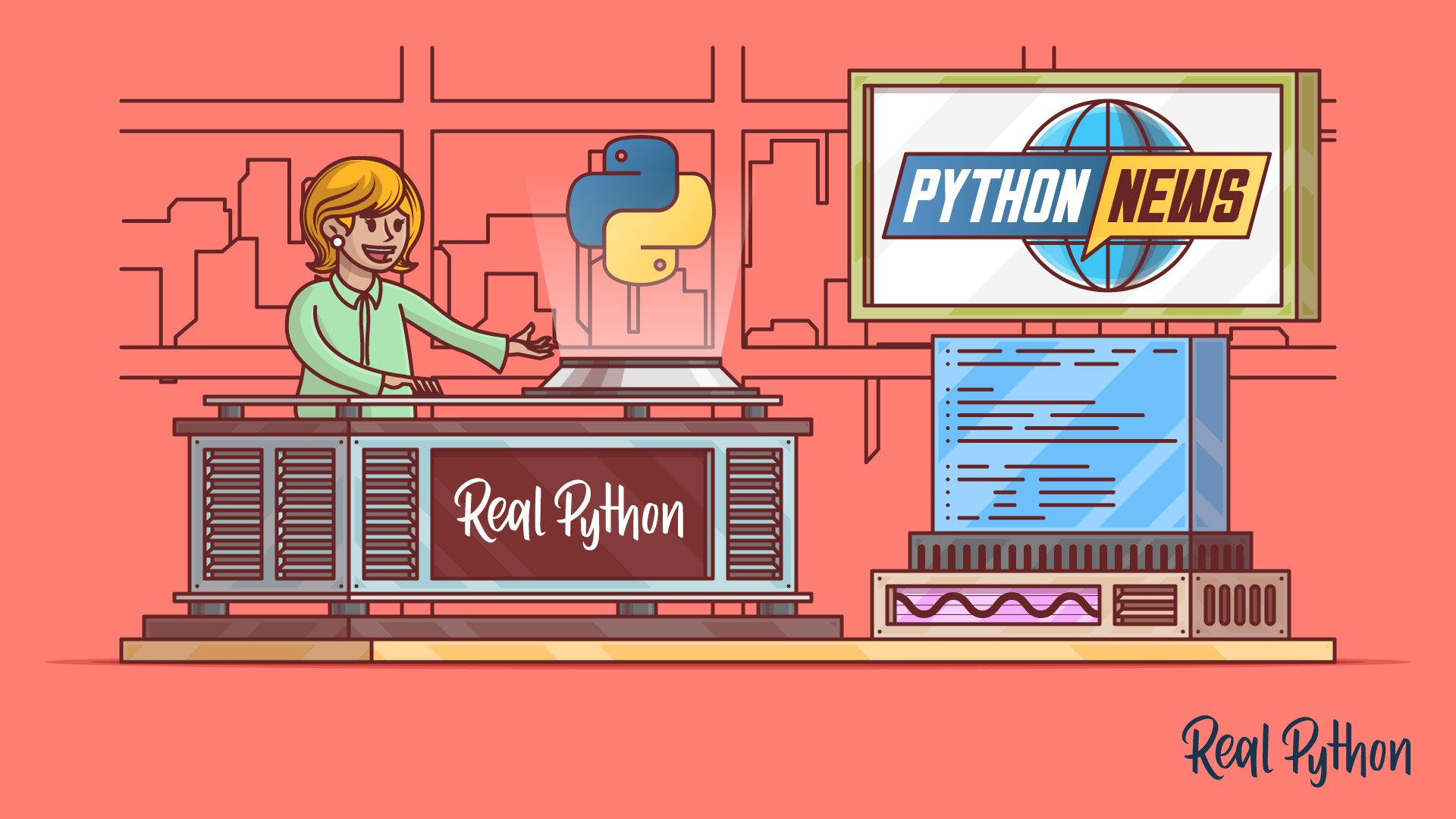In July, there was some exciting news for the Python community as the Python core development team released versions 3.13.0b4 and 3.13.0rc1 of the language. The 3.13.0b4 release marked the end of the beta phase and paved the way for the release candidate phase.
Note that 3.13.0rc1 is a pre-release, so you shouldn’t use it for production environments. However, it provides a great way to try some new and exciting language features.
There’s also great some news from the Python Software Foundation, PyOhio 2024, and the Python ecosystem.
Let’s dive into the most exciting Python news from last month!
Python 3.13.0b4 and 3.13.0rc1
Python 3.13 has reached its fourth beta release, marking the end of the beta phase. Beta releases serve to test new features and bug fixes. However, it’s important to note that this is a preview release and it isn’t recommended for use in production environments.
If you’re a library maintainer, you’re encouraged to test your code with this new version so you can prepare it to support the latest features of the language.
Note: To learn more about pre-releases, check out the How Can You Install a Pre-Release Version of Python? tutorial.
One of the most significant new features of Python 3.13 is the improved interactive interpreter or REPL, which now provides several cool features, including:
- Colorized prompts
- Multiline editing with history preservation
- Interactive help browsing with F1 and a separate command history
- History browsing with F2
- Paste mode for larger blocks of code with F3
- REPL-specific commands like
help,exit, andquitwithout the call parentheses
This is exciting news! The standard REPL up until Python 3.13 was lacking, and sometimes it was necessary to install a third-party tool like bpython or IPython to compensate.
Again, with this release, the beta phase has officially ended, and the first release candidate—3.13.0rc1—is considered the penultimate release preview. In this release candidate phase, only bug fixes are allowed.
The second candidate, which is the last planned release preview, should be out on September 3, 2024, and the official release of 3.13 should be ready on October 1, 2024. Only more excitement lies ahead!
The Python Software Foundation (PSF) Shares Great News
The Python Software Foundation (PSF) was also active last month. They made a couple of big announcements that thrilled the Python community, including the PSF Board election results for 2024 and new staff members.
PSF Board Election 2024
The Python Software Foundation (PSF) has three newly elected Board members:
Congratulations to the three of them! We’re sure you’ll do a great job.
New Infrastructure Engineer
The PSF also has a new Infrastructure Engineer, Jacob Coffee. He has joined the PSF staff and will bring his experience as an Open Source maintainer, homelab maintainer, and professional systems administrator.
Jacob shared:
I’m living the dream by supporting the PSF mission AND working in open source! I’m thrilled to be a part of the PSF team and deepen my contributions to the Python community. (Source)
Jacob will work on maintaining the PSF systems and services for the Python community, CPython development, and internal operations.
New PyPI Support Specialist
The PSF also welcomed Maria Ashna on board as a PyPI Support Specialist. Maria joins the PSF from a background in academic research, technical consulting, and theatre.
Maria will help the PSF better support the Python Package Index (PyPI), which has seen essentially exponential growth in traffic and users over the past 23 years.
From Maria:
I am a firm believer in democratizing tech. The Open Source community is the lifeblood of such democratization, which is why I am excited to be part of PSF and to serve this community. (Source)
Maria will be working on the PyPI support inbox, issue tracker, and discuss.python.org in the future to help improve and extend PyPI sustainably.
PyOhio 2024
PyOhio is a free community conference held annually in Ohio. Content offerings range from beginner to advanced, and it’s intended to be relevant to all types of Python users, including:
- Students
- Software professionals
- Scientists
- Hobbyists
This year, the conference took place between July 27 and 28. There were three keynotes focusing on reflection and growth:
-
Resilient Careers by Steph Hippo
-
Changelong by Mariatta Wijaya
-
Brains are Beautiful Liars by Trey Hunner
All three speakers are well-known members of the Python community and have made significant contributions to the language and its community. Other speakers addressed various Python-related topics.
Essential Python Projects Release New Versions
The Python ecosystem continues to evolve and improve its tools, frameworks, and libraries. Several essential Python projects have recently rolled out new versions. Here are the latest releases:
Django, the web framework, released version 5.1, which brings a variety of improvements. One highlight is a new querystring template tag, which makes it more convenient to work with query parameters in URLs.
The Pillow library, a tool for quickly accessing image data stored in various basic raster formats, also released a new version. This latest version includes bug fixes, deprecations, API changes, and a few miscellaneous changes. Check out the release notes for a complete list of changes.
The pytest library recently released 8.3.0 as its latest stable version. However, they also released two new maintenance versions, 8.3.1 and 8.3.2, with bug fixes and corrections. This new version of pytest includes several new features, bug fixes, documentation improvements, and more. You can check out the changelog document for more details.
Pydantic is another project that released new versions last month. They released version 2.8.0 and two maintenance version, 2.8.1 and 2.8.2, with a few bug fixes. Version 2.8.0 brought several new features, improvements, and bug fixes. The library’s changelog document provides a detailed list of these changes.
Finally, the Sphinx tool for creating project documentation has released a new version with several bug fixes, changes, and deprecations. This library has also released two maintenance versions with bug fixes.
PEP 751 – A File Format to List Python Dependencies
PEP 751 has proposed a new file format for specifying Python dependencies. It was written by Brett Cannon and posted to the community on July 24. The PEP is based on PEP 665 which tried to solve the same problem, but was ultimately rejected. PEP 751 is currently in draft status with discussions happening on Discourse.
The format proposed in this PEP aims to enable reproducible installation in a Python environment. It’s designed to be human-readable and machine-generated.
This PEP came out because there’s currently no standard that allows developers to:
- Specify the top-level dependencies that should be installed into a Python environment
- Create an immutable record, such as a lock file, of the installed dependencies
Right now, there are at least five solutions to these problems in the community:
These tools don’t use a standardized format or locking policies. This lack of standardization is a drawback because any tool working with lock files must choose which format to support, potentially leaving users unsupported.
What’s Next for Python?
July 2024 was an exciting month for the Python community. We had the first release candidate for Python 3.13, and we also received some good news from the Python Software Foundation about new members who will be contributing to the evolution of Python.
Finally, the Python ecosystem released new versions of the essential projects Django, Pillow, pytest, Pydantic, and Sphinx. We can’t wait to see what’s next! Let us know your thoughts on these developments in the comments below.
Happy Pythoning!






